Previous Conditions at 65 & 67 Easton Street
The Land Bank acquired 65 & 67 Easton Street, a 0.2 acre property, in 2020 with the goal of preserving existing downtown green space on a highly visible street corner. Before this project, this property served as a simple open park with a few shade trees, and benches for visitors to sit on as they enjoy the space.
This property experiences frequent flooding during precipitation events. When rain falls on impervious surfaces such as roads, roofs, and parking lots, it does not soak into the ground. That stormwater runoff picks up pollutants (e.g., fertilizer, sediment, pet/yard waste) and then flows into storm drains. The storm drains located at Easton Street lead to the harbor, so the Land Bank took on this project to improve the ability of this park to store and filter stormwater before it enters the harbor, thereby improving our harbor water quality.
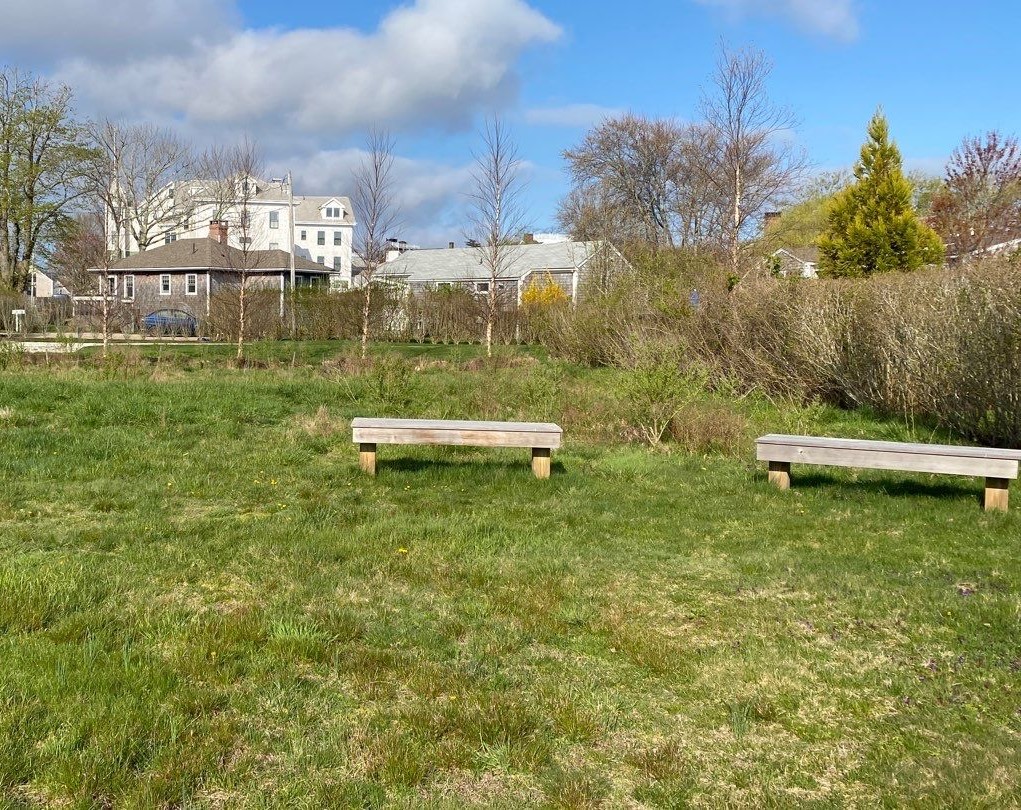
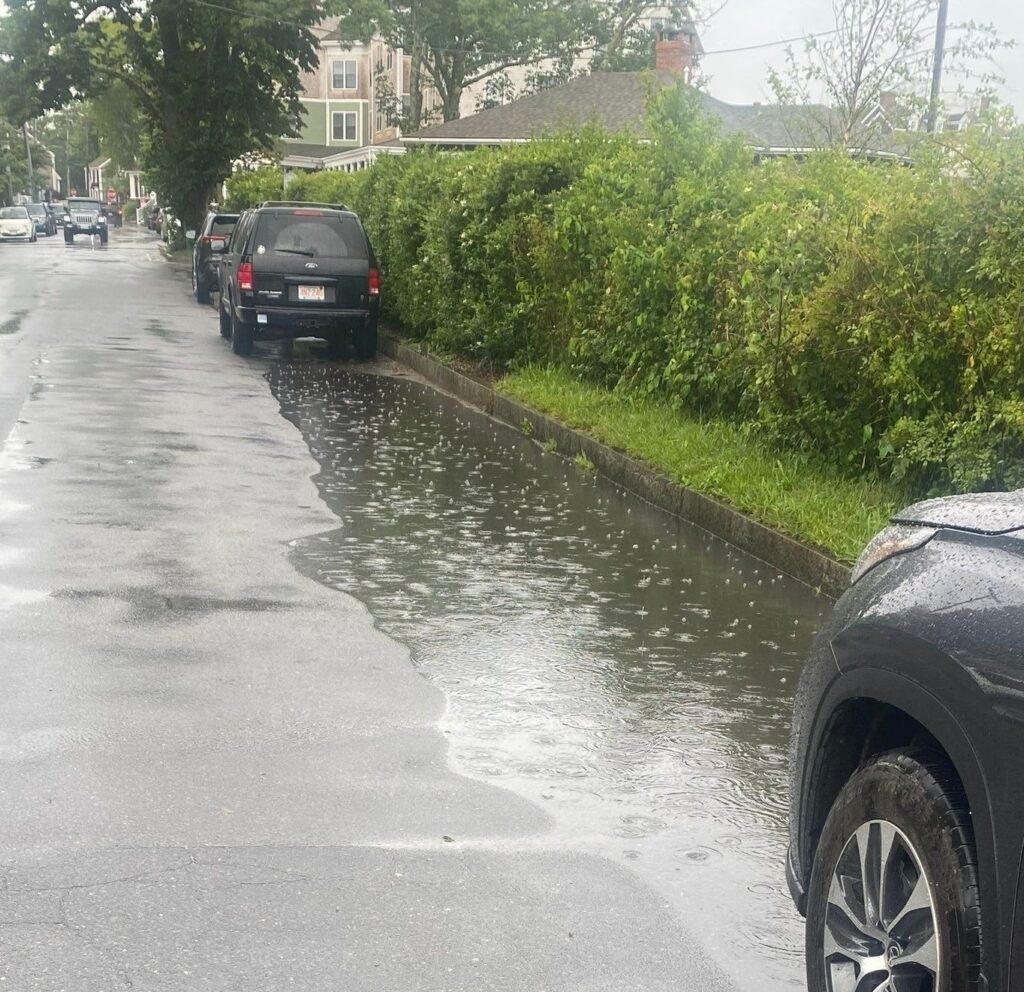
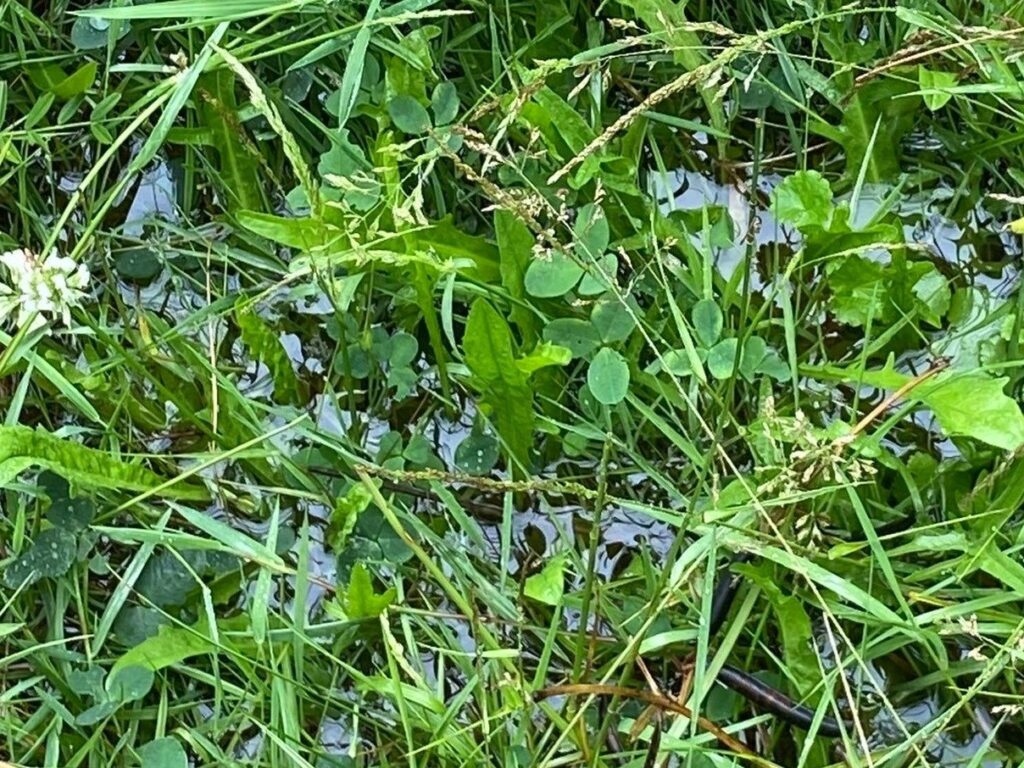
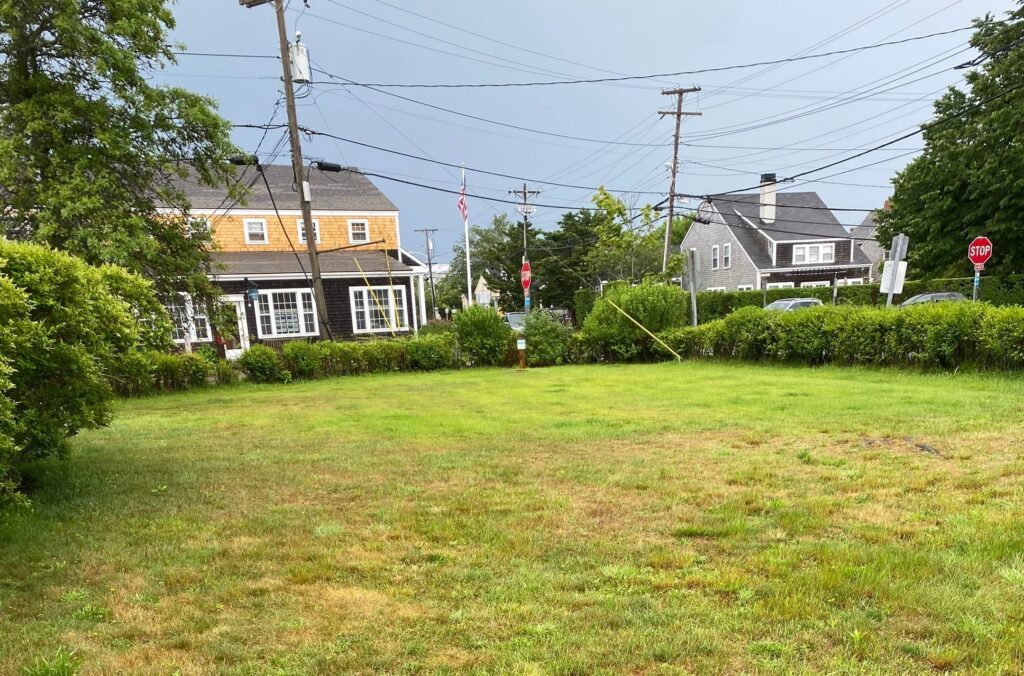
Land Bank Rain Garden Project
The Land Bank Rain Garden was developed by the Horsley Witten Group in collaboration with the Land Bank to better absorb and filter stormwater runoff before entering our harbor via storm drains. Key features of this project include the installation of the rain garden itself, as well as educational signage, an ADA-accessible walkway, and picnic tables. Construction began during Winter 2024, and the park is officially open to the public!
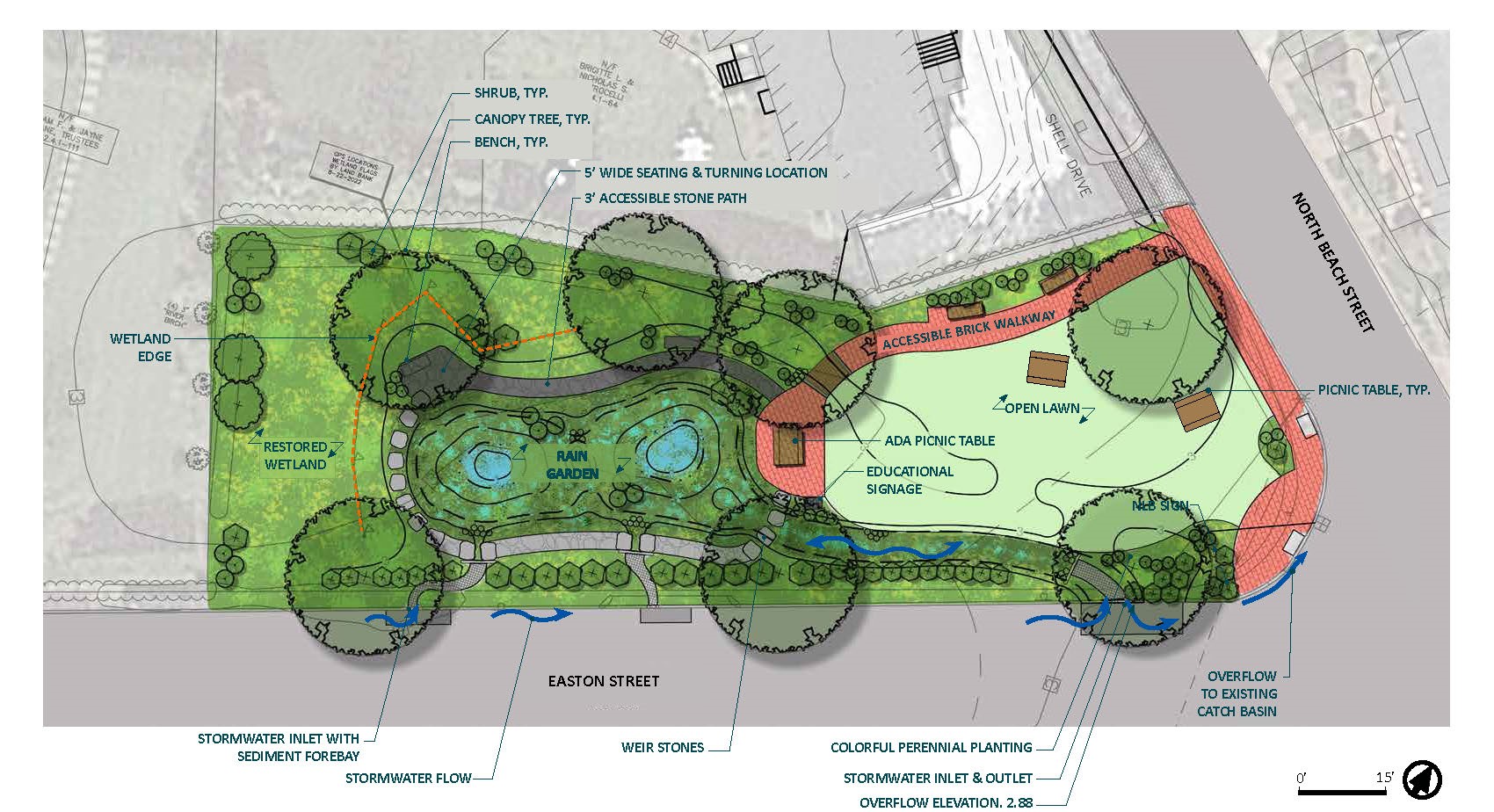
Plan (Horsley Witten)
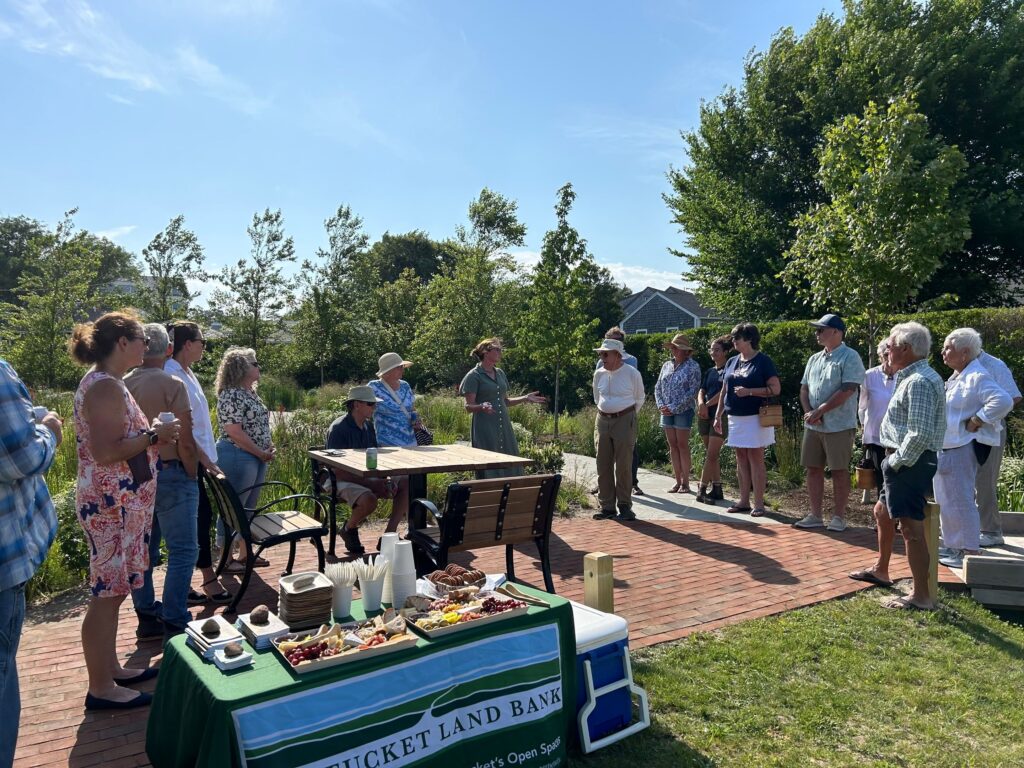
What is a Rain Garden?
A rain garden is a shallow depression that is intentionally designed and landscaped to direct, absorb, and filter stormwater runoff before it runs into storm drains. Rain gardens contain native perennial plants with robust root systems and soil microbes that are able to absorb large quantities of water, as well as filter out pollutants (much more effectively than the existing lawn at this property). This bioretention process will have a positive impact on our harbor water quality. When made with native species, rain gardens can also provide pockets of wildlife habitat.
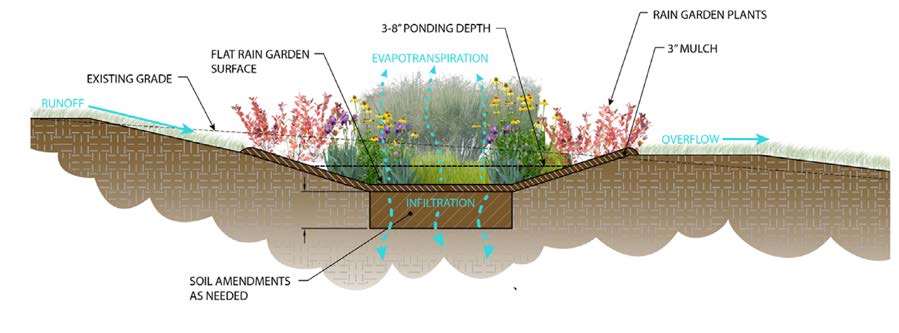
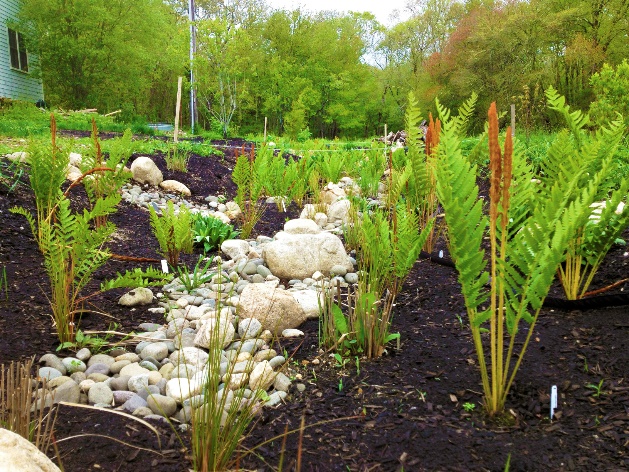
Build Your Own Rain Garden
A rain garden is a project that anyone could implement in their own yard to reduce unwanted flooding, improve stormwater quality, and provide a small pocket of wildlife habitat! Click here to learn how to build your own rain garden (Horsley Witten)!

